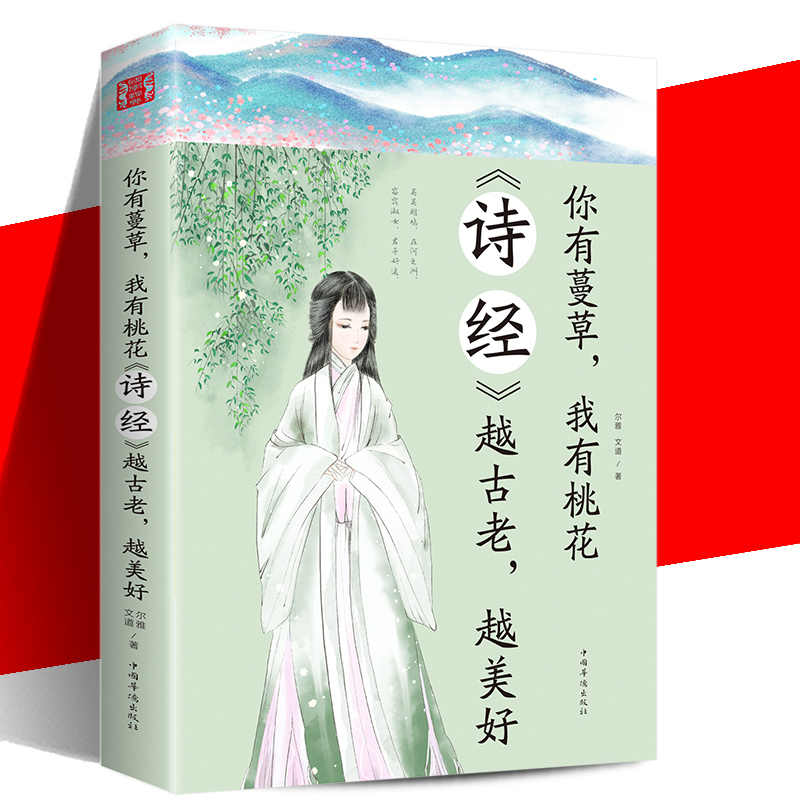WULOLIFE
《你有蔓草我有桃花(诗经越古老越美好)》作者: 尔雅 / 文道 出版社: 中国华侨出版社
《你有蔓草我有桃花(诗经越古老越美好)》作者: 尔雅 / 文道 出版社: 中国华侨出版社
Couldn't load pickup availability
Description
年少时候,汉、溱、洧、淇之水,透彻清凉,我欲淌之;蕙、兰、芷、若、蘅之花,招展美丽,的男女们,容易感动。
《诗经》中那么多的爱情真挚而生活化,没有呼喊着伟大与高远,但那些朴实无华中男子对的誓言;还有《木瓜》里不分贵贱真爱的馈赠等都是平凡人真实的恋情。
当然爱情之外,还有那个时代的劳作与智慧,先民们耕种、狩猎?祭祀、园艺、婚嫁等,这是人类一代又一代留传在遥远漫长的岁月里,周王朝自他崛起的那一刻便不断与周边的国家进行着大大小小的战争,我们便读到了先民们生活的哀怨和悲凉的一面,《诗经》就是那个时代先民日常生活的真实写照——与大体上同时代的,古希腊的《荷马史诗》是截然不同的,《荷马史诗》几乎就是凭借着幻想而虚很难读出其时代特性。
应该感谢《诗经》这部诗歌总集,尽管现在是高楼大厦灯火通明的都市社会,但读一下它,似乎就可以回到星罗棋布的村落社会,纯真爱穿越过三千年的漫长时光,我们依然可以感触到先秦的诸民生活,如果没有战争,阡陌尽头的那个那在水一方的“伊人”,那逾墙的“仲子”,那贻我彤管的“静女”……战事来了,便不过也便有了思妇望穿秋水的悲凉,那一个个翘首盼望征人归来的故事在遥远的年代不停地演绎。
生活在快节奏中的我们难免会羡慕我们的先民《诗经》中的男女是幸运的,因为他们生活在□□朴素的地方.片舒心的原野、山川与河流,顿觉心旷神怡。在这片□朴素的天人们采摘着植物,采摘着属于自己的快乐、忧伤与希望。生活的每一个片段,都能够唱出不加修饰,却吟出了□纯粹的乐章。于是那些手摇木铎的采诗官奔走在田野之间,聆听着大自然的美妙与人类纯粹的歌声,立刻飞速记下来……
《诗经》这部记载着中国周代到春秋时期长达五百多年的岁月诗歌,在历史的长河中流淌而至,袅袅娜娜地走来。让远古的和风自我们的心灵中过往,感受这穿越千年依然□美的风景。在纷繁的现代社会里,但愿读到的人都能感受到一种清澈的乐感。
